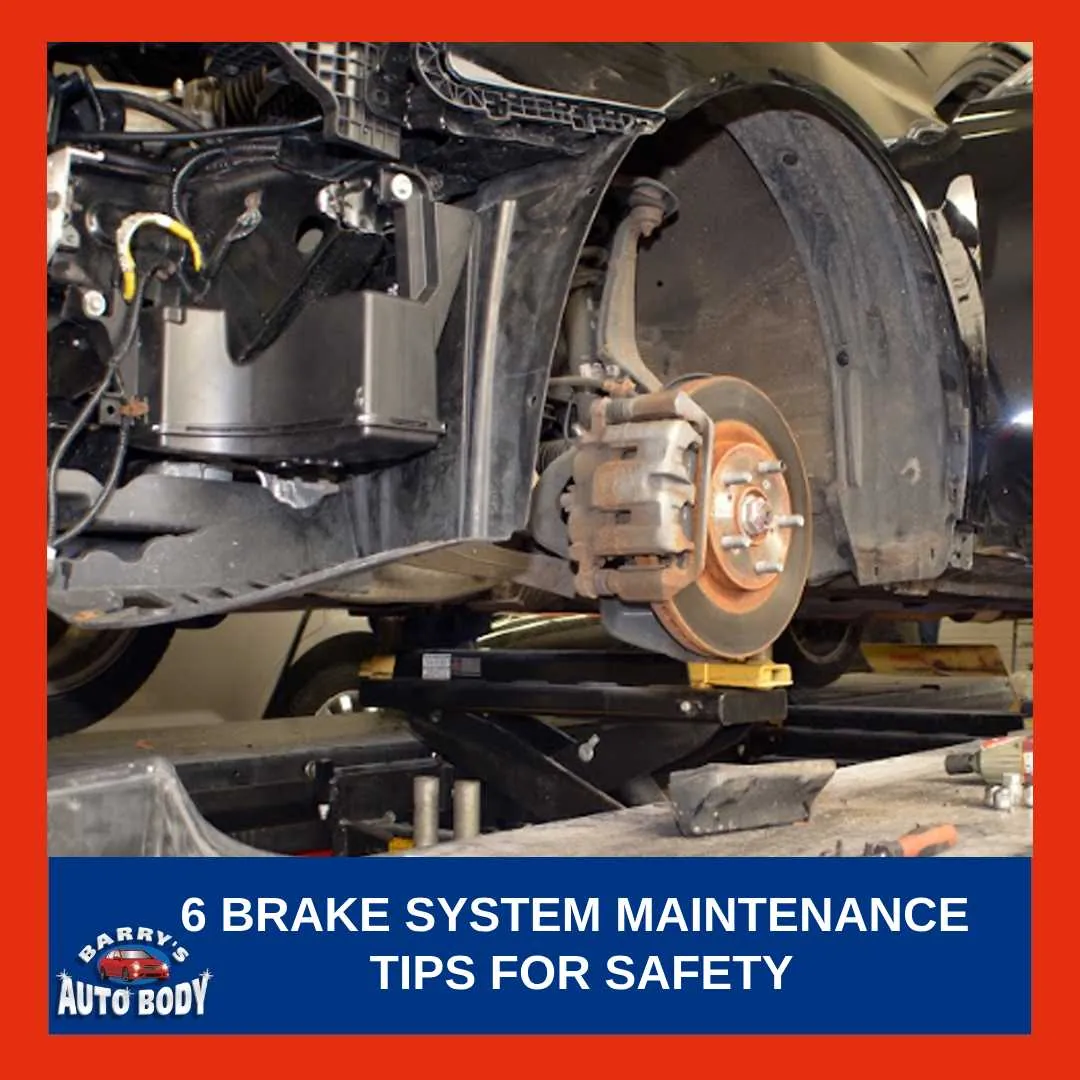Your car’s brake system is one of the most important safety features, and regular maintenance is crucial to ensure optimal performance. Whether you’re just starting out as a driver or have been driving for a while, knowing how to take good care of your brakes is important to keep everyone safe, including yourself.
In this blog post, we will provide six valuable tips for maintaining your brake system to ensure it operates at its best. From checking brake fluid levels to inspecting brake pads and rotors, these tips will help you keep your brakes in top shape and give you peace of mind on the road. So let’s dive in and learn how to care for your brakes like a pro!
Regular Brake Inspections
Regular brake inspections are crucial to maintaining optimal performance and safety. It is recommended to have your brakes inspected at least once a year or more frequently if you notice any signs of trouble. During these inspections, a trained technician can check for the following:
Wear and tear
Measure the thickness of brake pads
Screeching or grinding noises
Longer stopping distances
A soft brake pedal, and
Assess the condition of brake rotors
By catching any issues early on, you can prevent more expensive repairs down the line and ensure your brakes are in top shape.
Brake Fluid Check and Replacement
Brake fluid transfers force from the brake pedal to the brakes. Over time, brake fluid can absorb moisture, leading to decreased effectiveness and potential brake failure. Check your vehicle’s owner’s manual for the recommended interval for replacing brake fluid, usually around every two years. If you notice a drop in fluid levels or it looks dark and dirty, it may be time for a replacement.
Brake Pad and Rotor Maintenance
Brake pads and rotors are integral to stopping your vehicle effectively. Visual inspections are your best friend here. If your brake pads are less than a quarter-inch thick, it’s time to replace them. Additionally, if you notice grooves, cracks, or scoring on the brake rotors, it’s time for maintenance. Keeping these components in good shape ensures reliable braking performance.
Addressing Brake Noise and Vibrations
Brake noise and vibrations can indicate underlying issues with your braking system. If you hear squealing, screeching, grinding, or feel vibrations when you apply the brakes, it’s essential to address them promptly. Worn brake pads, damaged rotors, or other mechanical problems can cause these noises and vibrations. Ignoring these warning signs can lead to further damage and compromise your safety on the road. It’s best to consult a professional technician for an inspection and necessary repairs.
Proper Brake Bedding
Proper brake bedding is crucial for optimal brake performance. When you have newly installed brake pads or rotors, following the manufacturer’s instructions for appropriate bedding is essential. This process involves gradually bringing your brakes to operating temperature and cooling them down. Proper bedding ensures that the brake pads and rotors create an even friction layer, improving braking performance and reducing noise.
Brake System Upgrades and Enhancements
Brake system upgrades and enhancements can significantly improve the performance and safety of your vehicle. Upgrading to high-performance brake pads and rotors can enhance stopping power, reduce brake fade, and provide a more responsive braking experience. Additionally, installing stainless steel brake lines may improve brake pedal feel and decrease the risk of line failure under extreme conditions. Consider consulting a professional technician to determine which upgrades suit your vehicle and driving needs.
Your brake system’s upkeep is a commitment to your safety on the road. By following these six tips for brake system maintenance, you can ensure your brakes are in tip-top condition, providing you with the confidence you need while driving. Remember, a well-maintained brake system not only optimizes performance but also safeguards the lives of everyone in your vehicle. Stay proactive and prioritize your brake system’s care for a smoother, safer journey.

